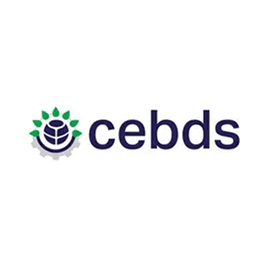
Mobilize employees for sustainability with 5 Levers Program
 TotalEnergies
TotalEnergies CEBDS
CEBDSSummary
Global program engaging employees in sustainable action across key levers, advancing progress toward carbon neutrality by 2050.
Context
TotalEnergies, one of the world’s leading energy companies, recognized that achieving carbon neutrality by 2050 required collective internal engagement, not just technological solutions. To foster this cultural and operational shift, the company launched the 5 Levers Program—a structured framework to drive sustainability across all operations and empower employees as climate ambassadors.
Location of the initiative: Global (implemented across TotalEnergies’ international operations)
Solution
The 5 Levers Program provides a structured methodology for embedding sustainability into the company’s culture and operations. It integrates five key focus areas (“levers”):
Energy Consumption – Using AI and digital tools to optimize energy use in production and operations.
GHG Emissions Reduction – Eliminating routine gas flaring and achieving OGMP 2.0 Gold Standard certification for methane management.
Environment – Implementing the Biodiversity Plan and promoting circularity, including recycling 65% of all waste.
Communities – Partnering with organizations to provide solar access, education, and digital literacy training for over 10,000 people across communities.
Care for People – Rolling out the Care Together program to promote mental and physical well-being among employees.
Each lever has its own roadmap, KPIs, and governance mechanisms to align with the company’s ESG objectives and climate targets.
Impact
Sustainability Impact
Climate
Routine flaring eliminated across several production sites.
Achieved OGMP 2.0 Level 5 certification, the highest standard for methane transparency.
Shared AUSEA drone technology with partners to quantify and reduce CH₄ and CO₂ emissions.
65% waste recycling rate achieved, contributing to circular economy targets.
Social
Over 10,000 people reached through community programs focusing on solar access, education, digital inclusion, and women’s empowerment.
Employees trained and mobilized as sustainability advocates across regions.
People
“Care Together” initiative strengthened employee health and safety culture, enhancing engagement and retention.
Business Impact
Benefits
Improved operational efficiency through energy optimization powered by AI.
Strengthened ESG profile and compliance with global sustainability standards.
Enhanced employee engagement and corporate reputation through shared sustainability goals.
Costs
Initial investments in AI systems, methane monitoring, and employee training were balanced by long-term gains in energy efficiency, regulatory compliance, and brand value.
Implementation
Typical Business Profile
Relevant for large industrial and energy-sector companies seeking to operationalize sustainability and engage employees in achieving decarbonization goals.
Approach
Establish clear sustainability pillars and KPIs.
Deploy cross-functional teams to design technical and social initiatives.
Integrate digital tools (AI, drones) for energy and emissions management.
Partner with local communities for shared value creation.
Continuously measure progress and report on ESG outcomes.
Stakeholders Involved
Lead teams: Sustainability, Operations, HR, and Community Engagement.
External partners: Local NGOs, educational institutions, and renewable energy organizations.
Key Parameters to Consider
Initiative maturity: Established, ongoing with measurable global outcomes.
Implementation timeline: Initiated in 2024; continuous progress toward 2050 goals.
Technical constraints: Integration of new technologies (AI, drones) across diverse operations.
Subsidies/support: Internal corporate sustainability investments.
Geographical relevance: Scalable for global multi-site operations.
Implementation and Operations Tips
Main challenge: Aligning global operations and workforce behaviors under one unified framework.
Solution: Create simple, measurable levers that local teams can adapt and act upon.
Tip: Pair technological innovation (like AI) with human engagement programs to drive sustained impact.